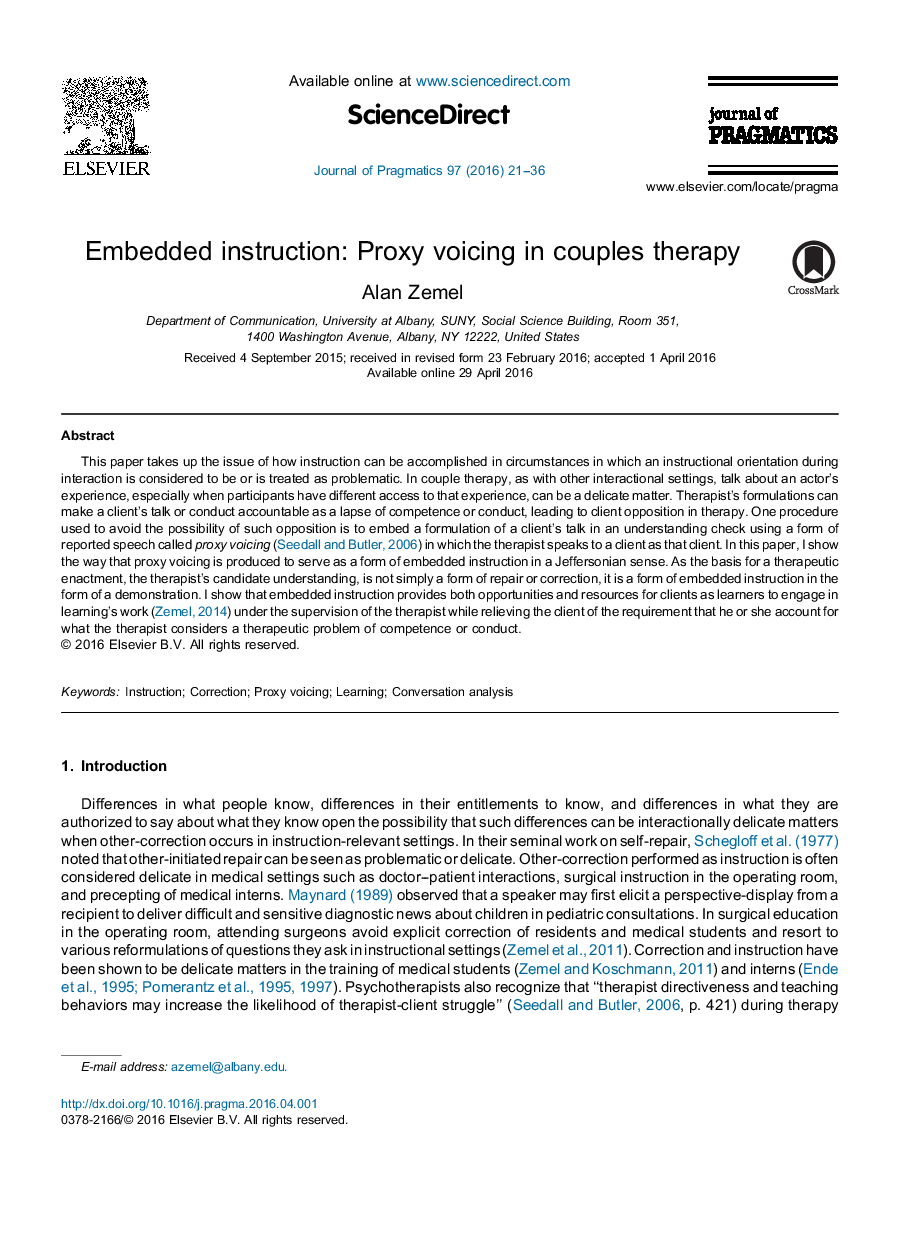| کد مقاله | کد نشریه | سال انتشار | مقاله انگلیسی | نسخه تمام متن |
|---|---|---|---|---|
| 932500 | 1474703 | 2016 | 16 صفحه PDF | دانلود رایگان |
• Correction and instruction can be delicate matters in psychotherapy.
• Proxy voicing, embedded in therapist understanding checks, minimizes this delicacy.
• Proxy voicing demonstrates alternative ways a client might speak.
• Client uptake of proxy voicing is a learning response to this embedded instruction.
This paper takes up the issue of how instruction can be accomplished in circumstances in which an instructional orientation during interaction is considered to be or is treated as problematic. In couple therapy, as with other interactional settings, talk about an actor's experience, especially when participants have different access to that experience, can be a delicate matter. Therapist's formulations can make a client's talk or conduct accountable as a lapse of competence or conduct, leading to client opposition in therapy. One procedure used to avoid the possibility of such opposition is to embed a formulation of a client's talk in an understanding check using a form of reported speech called proxy voicing ( Seedall and Butler, 2006) in which the therapist speaks to a client as that client. In this paper, I show the way that proxy voicing is produced to serve as a form of embedded instruction in a Jeffersonian sense. As the basis for a therapeutic enactment, the therapist's candidate understanding, is not simply a form of repair or correction, it is a form of embedded instruction in the form of a demonstration. I show that embedded instruction provides both opportunities and resources for clients as learners to engage in learning's work (Zemel, 2014) under the supervision of the therapist while relieving the client of the requirement that he or she account for what the therapist considers a therapeutic problem of competence or conduct.
Journal: Journal of Pragmatics - Volume 97, May 2016, Pages 21–36
